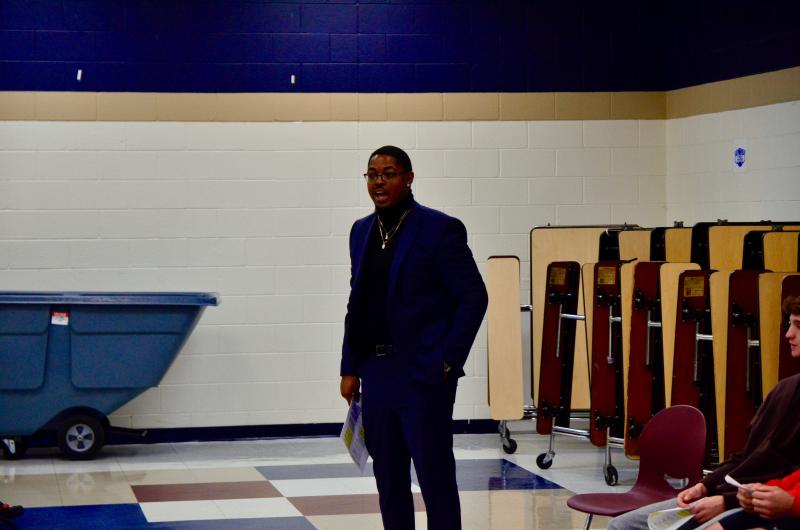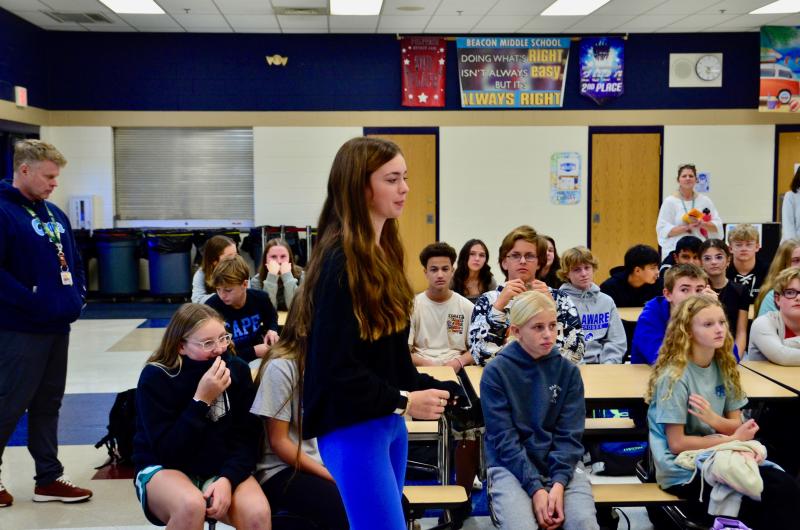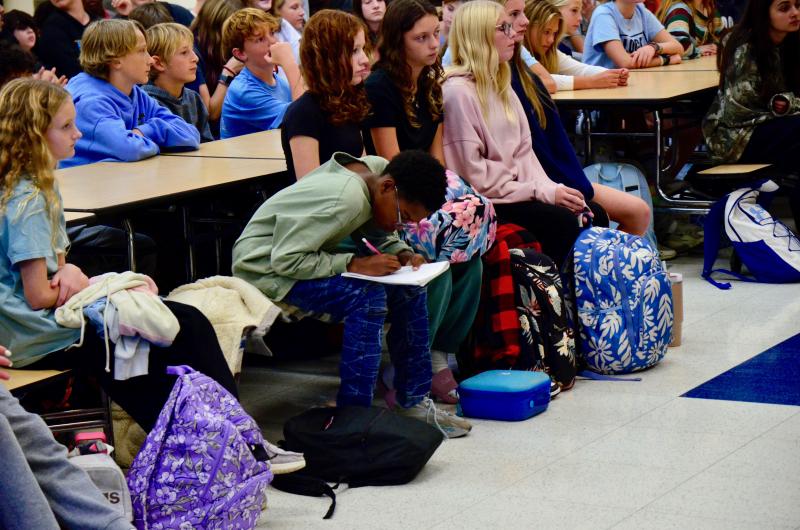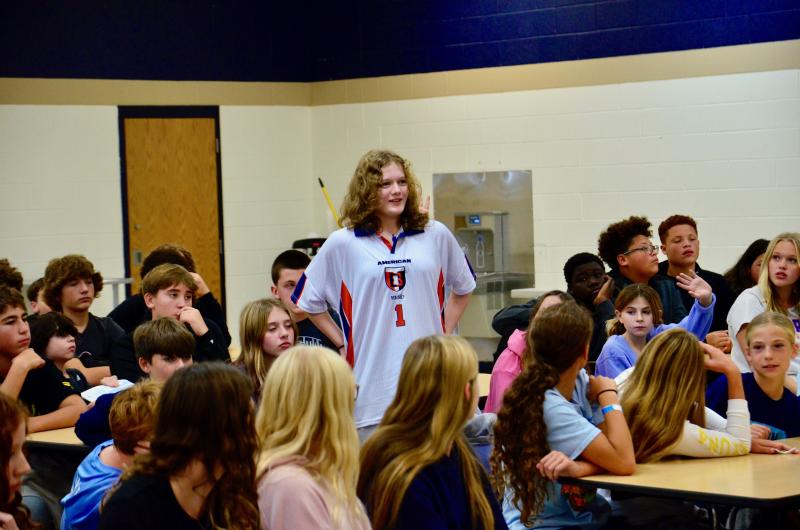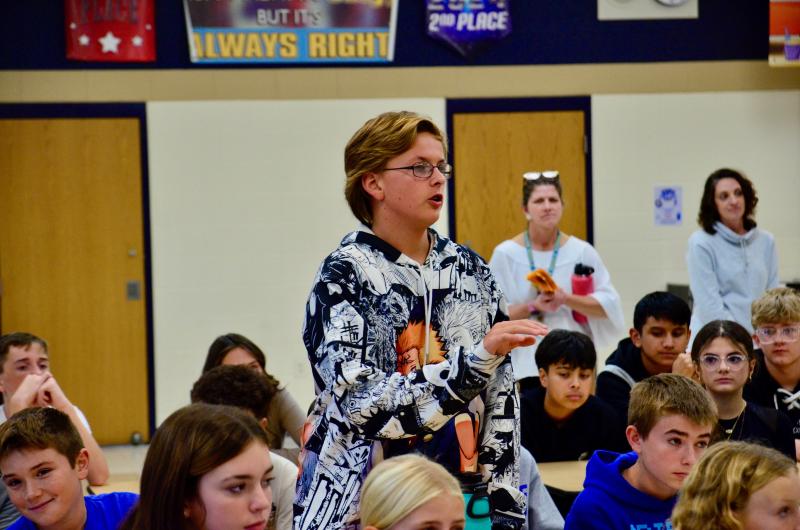Beacon Middle School connects students with future NCAA athletes

Beacon Middle School students with dreams of playing sports in college learned first-hand Nov. 12 what it takes to get noticed and recruited from four seniors at Cape whose hard work has led them to future spots on NCAA rosters.
With fall sports fading in the rearview and preparations for the winter season underway, students learned what awaits them on the road to a collegiate career from Ronan Pressler (Tiffin), Patrick Donahue (VMI), Lina Frederick (Salisbury), and Alivia Heers (St. Joseph’s) during an athletic panel hosted by Assistant Principal Dontez Collins.
Collins asked what coaches look for after the panel established grades are the top priority.
“You want to be coachable; you want to be open to receiving feedback and criticism,” Frederick said. “I know sometimes that's hard to take, but it's something that makes you better. You could ask your coach, ‘What can I do to get better?’’’
“Another thing is showing that you have a personality that is outgoing, funny, or even just yourself, and also showing that you're a team player,” Heers said. “If you're on a team with people who don't want to work together, there’s no fun in that, and coaches start looking for that; they want someone who will carry a bucket or who will pick up all the trash.”
Heers recalled a rule she had growing up requiring cleats to literally and figuratively be on in the car.
“That means phones are put away, and water bottles are full, so as soon as you open that door and start walking out, coaches notice and they’re like ‘Oh, she came ready to play.’ A lot of colleges, I’ve learned, look for that; you don’t want to be the player that shows up in their pajamas and Crocs still on,” Heers said.
Students learned the differences between DI, DII, DIII, Ivy League, and HBCUs, and what level of financial assistance they can provide and whether it is academic or athletic.
The panel encouraged students to play more sports outside of their favorite.
“It shows that you're a well-rounded athlete; you have the ability to play other sports while still performing well in your main sport,” Frederick said. “It's also really good for you mentally.”
Donahue let kids know they need to be proactive during the recruiting process.
“I did email, but I also filled out questionnaires on the website of the college,” Donahue said. “I emailed the coach my grades first – they are the most important – then added some achievements through wrestling.”
When it comes down to decision time, Frederick and Donahue said students should go with a school they feel comfortable attending even if they cannot play their chosen sport any longer.
Although college can get pricey, Pressler told the middle schoolers money is available to help cover tuition. He had just recently applied for and was awarded a scholarship.
“The guidance counselor sent out a giant list of lots of scholarships that give money,” Pressler said. “It’s based on grades and community service; it has nothing to do with your sport.”
Before dismissal, the panel reminded students their college choice is incredibly important, and they should weigh factors like distance from home, the makeup of the current team, and majors offered at the school before committing.













